Conference: Family Leadership Conference 2022 Presenters: Michelle Lewis, DaSy, Thomas McGhee, DaSy The goal of this presentation was to help participants (1) articulate the role of families and community members […]
Using Data to Advance Equity


Conference: Family Leadership Conference 2022 Presenters: Michelle Lewis, DaSy, Thomas McGhee, DaSy The goal of this presentation was to help participants (1) articulate the role of families and community members […]

Conference: IDIO 2022 Date: August 23, 2022 Presenters: Charlie Kniseley, Danny Rice, Ardith Ferguson, Katy McCullough, Anne Lucas As Part C lead agencies work to improve their single line of […]

Conference: DEC & ISEI Joint Conference 2022 Date: September 28, 2022 Presenter: Betsy Davies-Mercier, Grace Kelley, Thomas McGhee This presentation addresses why effective use of data involves bringing people together […]
DaSy collects comprehensive information on the status of Part C and Part B 619 data systems through the State of the States survey, which comprises a survey of Part C […]

The FFY 2021 Part B and Part C SPP/APR packages are now available. The final versions of the FFY 2021 SPP/APR packages are located on Resources for Grantees page of the IDEA section of the U.S. Department of Education website.
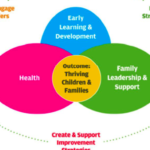
Many folks have been engaged in equity work at a personal and professional level. But what does it mean to have an equitable system? This session focused on how to intentionally include equity in your system through the indicators of quality in the revised ECTA/ DaSy System Framework. We shared how to use data at the leadership level to inform policy development, and provide opportunity to dig deep to identify needs, priorities, and opportunities for action at both the state and local level within your own system.
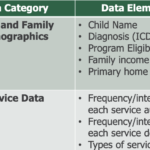
Methods for state Part C allocations are typically driven by factors such as the number of children served in the previous year and historic expenditure patterns. But how well are these allocations meeting the needs of children and families in the state Part C program? Might other factors better support different levels of need? Using multiple sources of programmatic and fiscal data, states may better understand how to equitably allocate resources statewide to serve all families. Because states vary considerably in how they are structured, in this session we discussed different considerations and methods for determining allocations to facilitate equitable use of early intervention resources statewide.
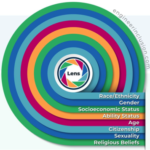
Today’s early childhood system has many positive and meaningful supports for children and their families. However, outcomes for children are disparate. Equitable access, appropriate supports, and full inclusion are not available to all children. This disparity is especially true for racially, culturally, and linguistically diverse children and families. In this session, participants examined history and data to explore how bias and ableism have impacted the early childhood system, specifically in relation to intersectionality, the perception of “quality” in programs, and inclusive services for all children.
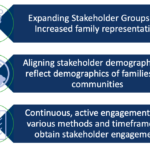
Having a robust stakeholder engagement plan is crucial. As states work to engage a broad range of stakeholders on an ongoing basis, virtual strategies and methods continue to be important—even as face-to-face gatherings increase.
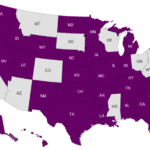
In this session, participants explored mutual partnerships and data sharing between state Part C and Early Hearing Detection and Intervention (EHDI) programs. Presenters summarizes key data reporting requirements, information from federal technical assistance centers, and resources developed by the EHDI Outcomes Data Committee.